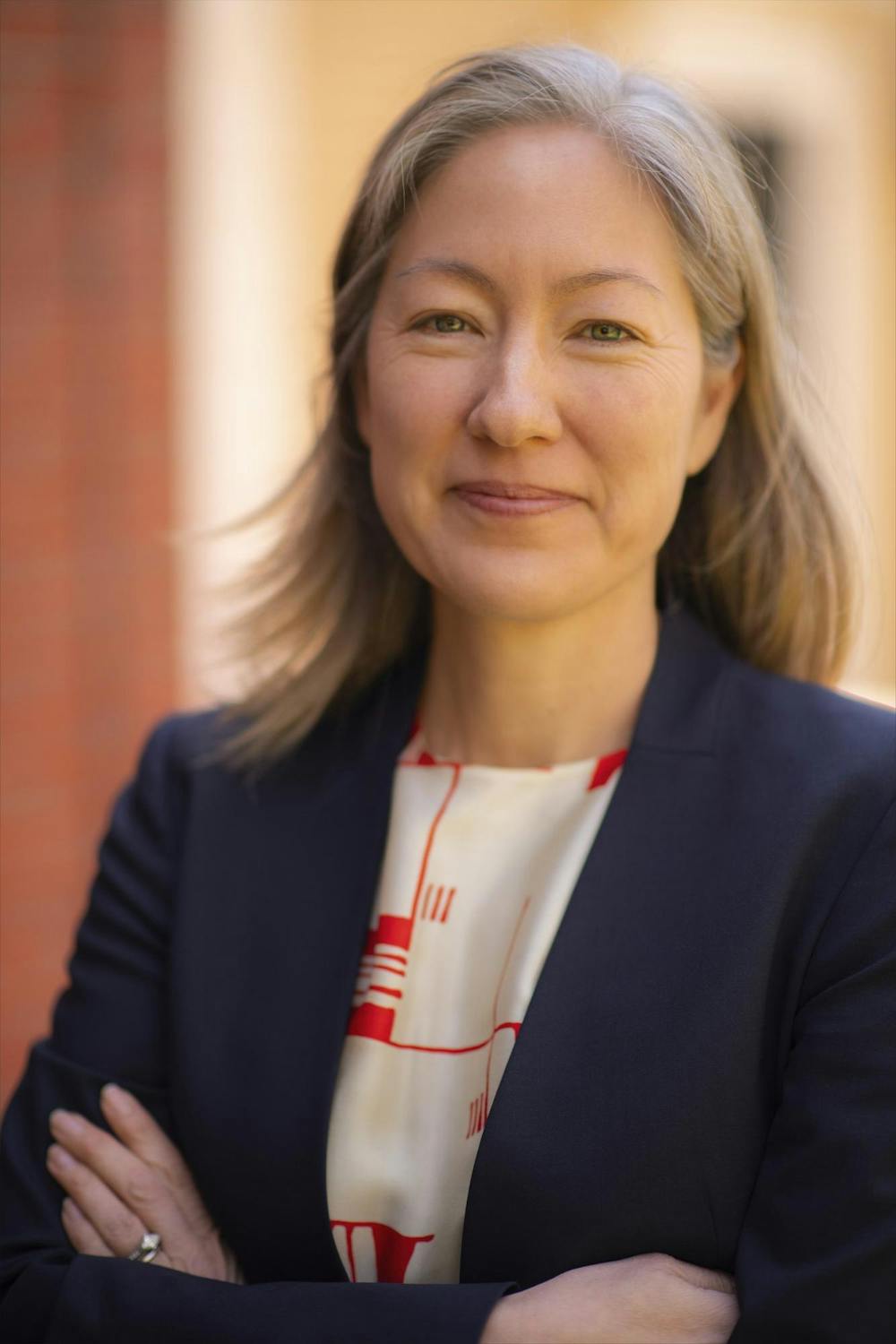On Oct. 10, Marisa Angell Brown stepped into her role as the Providence Preservation Society’s newest executive director. In her new role, Angell Brown aims to form lasting relationships across Providence’s many neighborhoods, as well as approach preservation work by more conscientiously thinking about its effects on environmental justice and public health.
Before her role at PPS, Angell Brown served as the associate director of the Rhode Island School of Design’s Center for Complexity and assistant director of programs at Brown University’s John Nicholas Brown Center for Public Humanities and Cultural Heritage.
Angell Brown said she got involved in preservation efforts when her own family’s history and heritage began to make her question “whose heritage gets preserved and whose doesn’t.”
Her father’s side of the family has been in the United States for hundreds of years and has well-documented archives and stories that have been passed down. Angell Brown’s mother, however, emigrated from South Korea — leaving a country that “she had mixed feelings about” — and didn’t share much of her family history, Angell Brown explained.
“As I got older, I was really interested in how, within your own family stories, … some get elevated (while others aren’t) really talked about,” she said.
In her academic work, Angell Brown is particularly interested in art and architectural history. “What are the things that a culture decides to spend a lot of resources conserving, protecting, elevating and interpreting?” she asked. “And what are the things that we decide are not valuable or we’re going to let be demolished or erased?”
Angell Brown hopes to answer these questions and make preservation efforts more relevant to the communities PPS serves by identifying what it is about spaces and their histories that make them valuable to the people who use them every day.
Angell Brown’s goals are in line with the broader mission of PPS, which “has been dedicated to the preservation and revitalization of place, neighborhoods and the overall built environment within the city for decades,” according to Adriana Hazelton, an advocacy manager at the organization.
Hazelton wrote that with its Strategic Plan, PPS hopes to “demonstrate how preservation can play a larger role … in supporting affordable housing and vibrant neighborhoods,” an effort now aided by Angell Brown’s “substantial history and experience with community-centered preservation, history and design.”
Brent Runyon, former executive director of PPS, said that one of the most important goals of the society is focusing on “how preservation can be a tool for revitalization in neighborhoods.”
“Our neighborhoods are the heartbeat of our city,” he said. According to Runyon, preservation needs to play a part in both maintaining architectural heritage and the “stewardship of resources that have already been expended to create buildings.”
Hazelton said that PPS’s other goals include “expanding … preservation trades and building works programming,” forming relationships within the city and creating spaces for residents to advocate for preservation and plan initiatives.
Angell Brown said that she is excited to work with all 25 of Providence’s neighborhoods in her new role: “It’s an amazingly diverse city for its size, and it’s really exciting to get to work at this scale.”
She also discussed how preservation involves the consideration of public health and environmental justice, as both construction and demolition produce significant carbon emissions. She hopes to build coalitions in support of these considerations.
But Angell Brown’s new role does not mean an end to her work with the University — where she hopes to continue publishing original research on Providence’s architecture and heritage. “I’m really interested in thinking about how we work with artists and writers and performers to bring historic sites alive (and) create work that speaks critically back to spaces that have really problematic or complicated histories,” she said.
Runyon said that he hopes PPS “is able to think about neighborhood revitalization in a more just way,” especially when it comes to thinking about how preservation is associated with gentrification and displacement. “That work is hard, and there is no magic bullet,” he said.
While it may vary across neighborhoods, “we think the data is always going to show that preservation equals gentrification and displacement," but that's not "always the case," Angell Brown said. "Can we be working with policymakers outside the field of preservation so that when a neighborhood is preserved, there are measures in place for things like affordable housing units or something like that? That's outside of our scope, but these are partners we should be working with."
PPS is also currently researching homes and businesses previously owned by Black people on College Hill that are now University property. Angell Brown said this work “comes on the heels of the significant research that has already been done by Stages of Freedom and the Black Heritage Society, (who) have been the field leaders in elucidating this history.”
Ultimately, “we have a responsibility to really think through the impacts of the work and what it does to people and their … ability to remain in a place after preservationists have come into it,” Angell Brown said.
Correction: A previous version of this article incorrectly described Angell Brown's view of gentrification's relationship with preservation. The Herald regrets the error.

Avani Ghosh is a contributing editor at The Herald. She previously served as a metro editor and covered city and state politics. She is a senior from Ohio studying Health and Human Biology and International and Public Affairs. She is an avid earl grey enthusiast and can be found making tea in her free time.





